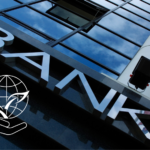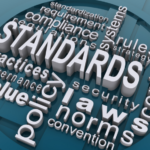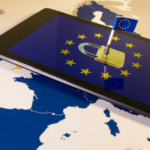Η βιωσιμότητα δεν είναι πλέον μια επιλογή - είναι μια αναγκαιότητα για την επιβίωση στον σημερινό επιχειρηματικό κόσμο. Καθώς οι κανονισμοί ESG αυστηροποιούνται σε όλη την Ευρώπη και παγκοσμίως, οι επιχειρήσεις πρέπει να προχωρήσουν πέρα από την εταιρική ευθύνη προς μια μετρήσιμη, υπεύθυνη και στρατηγική προσέγγιση. Οι εταιρείες που δεν καταφέρνουν να προσαρμοστούν βρίσκονται ήδη αποκλεισμένες από τη χρηματοδότηση, τους επενδυτές και τις αλυσίδες εφοδιασμού.
Όπως έγραψα στο πρόσφατο άρθρο μου για το Καθημερινή, αυτό που παλαιότερα θεωρούνταν "καλό να έχει κανείς" είναι τώρα μια επιχειρησιακή και φημιστική επιταγή. Η ατζέντα της βιωσιμότητας, καθοδηγούμενη από πλαίσια όπως το Οδηγία για την υποβολή εκθέσεων εταιρικής βιωσιμότητας (CSRD) και Ταξινόμηση της ΕΕ-απαιτεί από τις εταιρείες όχι μόνο να συμμορφώνονται με τους δείκτες ESG, αλλά και να αποδεικνύουν ότι δημιουργούν πραγματικό, επαληθεύσιμο αντίκτυπο.
Η αλλαγή: από εθελοντική σε υποχρεωτική
Μέχρι πρόσφατα, η βιωσιμότητα αντιμετωπιζόταν συχνά ως μια εθελοντική πρωτοβουλία που καθοδηγείτο από την ΕΚΕ. Το τοπίο όμως έχει αλλάξει. Η ESG είναι πλέον νομικά ενσωματωμένη στην εταιρική διακυβέρνηση, στις οικονομικές γνωστοποιήσεις, ακόμη και στις πολιτικές προμηθειών.
Στην ΕΕ, οι νέοι κανονισμοί απαιτούν από χιλιάδες εταιρείες -συμπεριλαμβανομένων των εταιρειών εκτός ΕΕ που δραστηριοποιούνται στην αγορά της ΕΕ- να δημοσιοποιούν λεπτομερή στοιχεία ESG. Σε αυτά περιλαμβάνονται οι περιβαλλοντικές επιδόσεις, ο κλιματικός κίνδυνος, οι επιπτώσεις στην αλυσίδα εφοδιασμού, οι πολιτικές για τα ανθρώπινα δικαιώματα και οι πρακτικές κατά της διαφθοράς. Εν ολίγοις, η βιωσιμότητα δεν είναι πλέον ένα εργαλείο μάρκετινγκ. Είναι ζήτημα συμμόρφωσης - και μάλιστα στρατηγικό.
Γιατί η απόδοση των ESG ισοδυναμεί με επιχειρηματική ανθεκτικότητα
Το βιωσιμότητα αναγκαιότητα για την επιβίωση υπερβαίνει τις νομικές απαιτήσεις. Αφορά τη μακροπρόθεσμη βιωσιμότητα της επιχείρησης. Οι παράγοντες ESG επηρεάζουν πλέον:
-
Πρόσβαση σε κεφάλαια και ευνοϊκούς όρους δανεισμού
-
Εμπιστοσύνη των επενδυτών και αξιολογήσεις πιστοληπτικής ικανότητας
-
Καταναλωτική πίστη και φήμη της μάρκας
-
Τοποθέτηση στην αγορά τόσο στον δημόσιο όσο και στον ιδιωτικό τομέα
Σύμφωνα με την έρευνα του CSE για το 2024 στην Ελλάδα:
-
160+ εταιρείες δημοσιεύουν πλέον εκθέσεις ESG
-
94% ακολουθήστε GRI πρότυπα
-
89% ευθυγραμμίζονται με το Στόχοι βιώσιμης ανάπτυξης του ΟΗΕ
-
Ωστόσο, μόνο το 32% υφίσταται εξωτερική διαβεβαίωση, διακινδυνεύοντας ισχυρισμούς περί "πράσινης πλύσης
Τα στοιχεία αυτά δείχνουν ότι, ενώ η υιοθέτηση των ESG αυξάνεται, η αξιοπιστία και το βάθος παραμένουν άνισα. Η διασφάλιση και η διαφάνεια είναι κρίσιμα επόμενα βήματα.
Οι κίνδυνοι της Greenwashing και αδράνεια
Το να μην λαμβάνεις σοβαρά υπόψη την ESG δεν είναι πλέον απλώς επικίνδυνο - μπορεί να αποβεί μοιραίο για μια μάρκα ή επιχείρηση. Οι ρυθμιστικές αρχές σε όλη την Ευρώπη επιβάλλουν πλέον κυρώσεις για παραπλανητικούς ισχυρισμούς ή ασαφείς δηλώσεις ESG. Οι επενδυτές αποσύρονται από χαρτοφυλάκια που στερούνται ακεραιότητας και οι πελάτες ψηφίζουν με το πορτοφόλι τους.
Οι εταιρείες που αγνοούν την ESG χάνουν επίσης ευκαιρίες για δημόσιες συμβάσεις, συνεργασίες και φορολογικά οφέλη. Όπως σημείωσα στο άρθρο μου, η βιωσιμότητα έχει γίνει ο φύλακας της εμπιστοσύνης-και ότι η εμπιστοσύνη είναι απαραίτητη για τη λειτουργία στη σύγχρονη οικονομία.
Ένας οδικός χάρτης για ηγέτες: Τι να κάνετε τώρα
Για να αντιμετωπιστεί το βιωσιμότητα αναγκαιότητα για την επιβίωση, οι ηγέτες των επιχειρήσεων πρέπει να δράσουν σε πολλαπλά μέτωπα:
-
Ανάπτυξη δομημένης στρατηγικής ESG με σαφείς στόχους και KPIs
-
Ευθυγράμμιση των εκθέσεων με αξιόπιστα πρότυπα όπως GRI, SASB, ESRS ή TCFD
-
Εξασφάλιση εξωτερικής διασφάλισης για τις γνωστοποιήσεις ESG για την οικοδόμηση εμπιστοσύνης
-
Εκπαίδευση της ηγεσίας και του προσωπικού να κατανοήσουν τους κινδύνους και τις ευκαιρίες ESG
-
Ενσωμάτωση της βιωσιμότητας στη λήψη αποφάσεων, διακυβέρνηση και πρακτικές εφοδιαστικής αλυσίδας
Αυτό δεν είναι μια εφάπαξ άσκηση. Είναι μια συνεχής διαδικασία που απαιτεί συνεχή εκπαίδευση, λογοδοσία και εμπλοκή των ενδιαφερομένων μερών.
Η βιωσιμότητα δεν είναι τάση - είναι το μέλλον
Όπως κατέληξα στο συμπέρασμά μου Καθημερινή άρθρο, "Η βιωσιμότητα δεν είναι πλέον πολυτέλεια - είναι ο μόνος δρόμος προς τα εμπρός". Οι επιχειρήσεις που συνεχίζουν να το αντιμετωπίζουν ως προαιρετικό πρόγραμμα ή εργαλείο δημοσίων σχέσεων θα δυσκολευτούν να επιβιώσουν. Εκείνες που ενσωματώνουν την ESG στη στρατηγική τους θα ευδοκιμήσουν σε μια αγορά όπου η διαφάνεια, η ηθική και ο αντίκτυπος έχουν μεγαλύτερη σημασία από ποτέ.
Η νέα πραγματικότητα είναι σαφής: η βιωσιμότητα είναι αναγκαιότητα για την επιβίωση-και όσο πιο γρήγορα προσαρμοστούμε, τόσο πιο ισχυρές θα γίνουν οι επιχειρήσεις και οι κοινωνίες μας.









